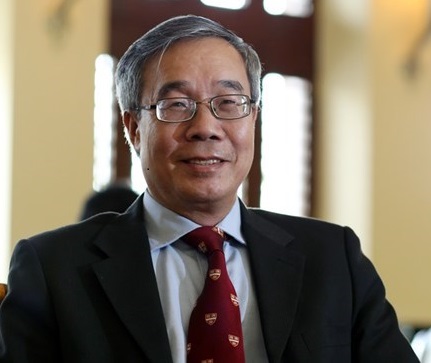Mr. Tran Duc Canh: There Are Many Signs of a Shift in Educational Mindset
Combining two exams into one, although not yet fully complete, is a breakthrough step, more importantly, a sign of a shift in educational management thinking.
Editor’s Note: According to Mr. Canh, this shift can be understood as moving from details to a more comprehensive approach.
Mr. Canh’s opinions, published on the Vietnam Education Online Newspaper, have always received significant attention from readers both within and outside the country. Reflecting on education in the past year, especially higher education, Mr. Tran Duc Canh shares some of his personal views.
Mr. Canh stated: “Starting from the Proposal for fundamental and comprehensive reform of the education and training system and previous proposals, the 2014 implementation of merging the high school and university entrance exams into one was a breakthrough step.

Mr. Tran Duc Canh, former Director of Training and Human Resource Development for Massachusetts (USA).
Although there are differing opinions on the method and timing of the exams, this decision is necessary, aligning with societal demands and the trend of integrated development. Most importantly, it signifies the Ministry of Education and Training’s shift in educational management from micro-management to a broader focus on policymaking, direction, and long-term education and training development plans. This is the educational management model in developed countries.Mr. Tran Duc Canh, former Director of Training and Human Resource Development for Massachusetts (USA).
Creating the necessary open space for universities to thrive, including academic freedom, financial autonomy, and self-management with accountability, is key. This is a promising sign.”
According to Mr. Canh, delving into the details of Vietnam’s higher education system reveals many issues, from quality to the methods and processes of training, each rooted in deep-seated causes.
Mr. Canh’s viewpoint is that a comprehensive evaluation and identification of systemic issues and solutions are necessary because focusing only on details will lead to getting stuck without finding a way out. This approach should not only apply to universities but to the entire current education system.
(GDVN) – This admission method aligns with the Ministry of Education and Training’s examination reforms aimed at selecting candidates fully capable of pursuing higher education.
“Many view Vietnam’s education system as a half-empty glass; I am more optimistic, seeing it as half-full. I hope for a stronger and more convincing new beginning by transferring fundamental rights to universities as I mentioned above, with them bearing responsibility… This is the most important breakthrough in higher education, and now is the most suitable time,” Mr. Canh expressed.
Over the past year, higher education has seen many important changes, the most notable being the issuance of the University and College Charter. Commenting on this event, Mr. Tran Duc Canh said that the issuance of this Charter has a more open and flexible approach, indicating a gradual shift in the Ministry of Education and Training’s role toward macro-management.
In the recent Charter, what Mr. Canh is most concerned about is the clear definition of the nonprofit university model. However, on closer inspection, the Charter for universities and colleges still gets entangled in details.
It could even be understood that this Charter has become more of an internal regulation for each institution rather than a general regulation from the Ministry of Education and Training. The general Charter needs a broader and more flexible framework, but it must still be strict and structured.
Also, over the past year, many have argued that higher education needs to invest in quality, which will be enforced by not opening new schools. However, another perspective suggests that more schools are needed to ensure the student-to-population ratio meets the set targets.
For Mr. Tran Duc Canh, Vietnam’s education currently needs both quality and quantity to meet the demands of economic and social development in the new development phase. According to him, it is first necessary to quickly rectify the training processes and quality before encouraging an increase in the number of colleges and universities. The process of increasing student numbers and universities over the past decade provides lessons, both positive and negative.
“We need a human resource training plan closely linked to economic and social development for the next 5-20 years and even longer. The number of colleges, universities, and students, and the training disciplines should reflect the development needs of each period.
To do this well, research and evaluation of human resource needs must be conducted on a wide scale, with full coverage and quality. Only then can planning and implementation be effective.
We are in a historical moment where the global economic and social landscape is changing at a super-fast pace, and the workforce must not only meet current needs but also accurately predict future industry needs,” Mr. Canh emphasized.
On the occasion of the new year, a year with many educational innovations, Mr. Tran Duc Canh hopes that this summer, the Ministry of Education and Training, along with local authorities, will organize a successful high school graduation exam, drawing lessons for future years. At the same time, he encourages promoting university autonomy through specific policies and implementation plans, which will open up many opportunities for universities to develop…
Xuan Trung
Source: http://giaoduc.net.vn/Giao-duc-24h/Ong-Tran-Duc-Canh-Co-nhieu-dau-hieu-chuyen-doi-tu-duy-giao-duc-post155646.gd

